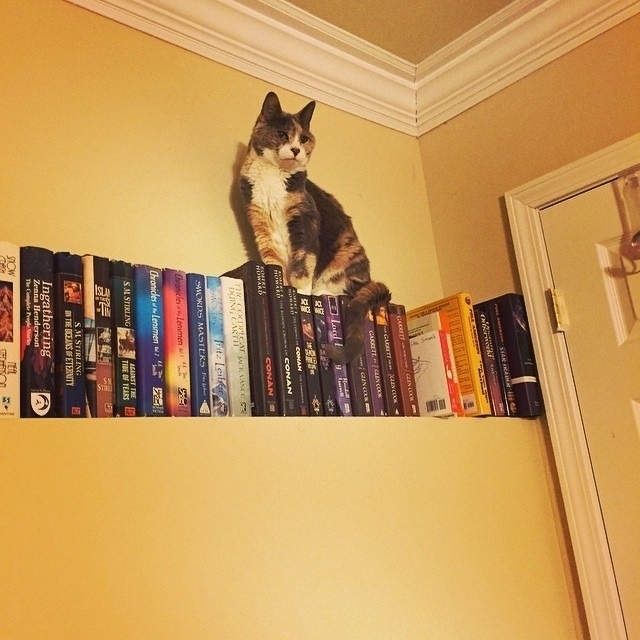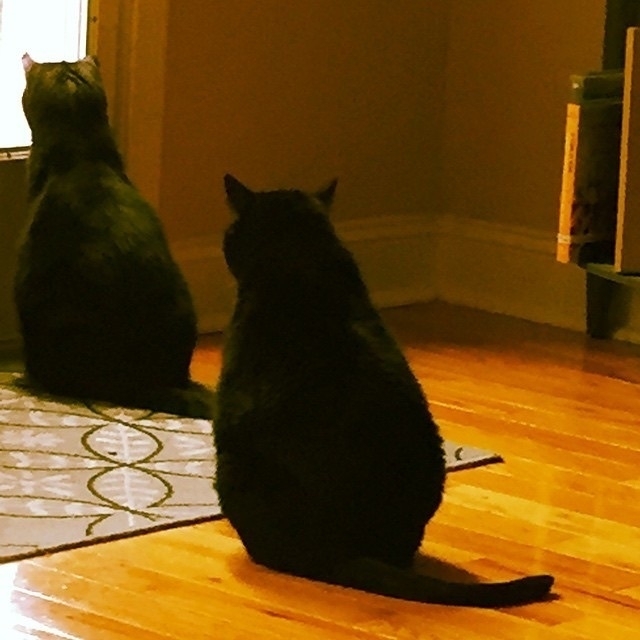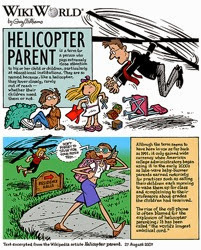Wonderful treatment for Holy Saturday – A Clerk of Oxford: ‘Open wæs þæt eorðærn’: the Harrowing of Hell
It’s possible to get a great deal of reading done in a laundromat.
Very few things as anticlimactic as the afternoon before a multi-day vacation starts.
Finished reading: Index, a History of The by Dennis Duncan 📚More interesting than it sounds!
Finished reading: The Second Founding: How the Civil War and Reconstruction Remade the Constitution by Eric Foner 📚Learned some things.
Finished reading: Augustus by Adrian Goldsworthy 📚 More detail here on the Augustus stage than I’ve read before.
Finished reading: Cicero by Anthony Everitt 📚Worth the time, and more sympathetic than many other portrayals.
Finished reading: Empire by Niall Ferguson 📚
Finished reading: Wyclif’s Dust by David Hugh-Jones 📚
Finished reading: The Anglo-Saxons by Marc Morris 📚
Really good, a nice counterpart to the author’s other volume on the Norman Conquest.
Currently reading: The Anglo-Saxons by Marc Morris 📚
Finished reading: Between Two Worlds by Malcolm Gaskill 📚
👍Fantastic review of the 17th-century period.
Finished reading: Chronicle of the Abbey of Bury St Edmunds by Jocelin de Brakelond 📚
Reading for a graduate leadership course in development; it will be interesting to see what the students make of Abbot Samson!
For everlasting memory

New furniture covers, new cat configurations.

If I see farther, it is because I stand on the shoulders of giants. - Academicat

Patiently waiting for turn at Cat TV.

THEOLOGY AND BBT
The Big Bang Theory: From Caricature to Complexity (Peter Augustine Lawler): “The Big Bang Theory ultimately points to the limited but real wisdom that comes from understanding two partial truths—that of the personal, judgmental, loving God and also that of the ‘God of nature’ the scientists seek to understand. The show leads us to think about how to put together the two explanations of ‘the Big Bang’—one based on faith in a personal Creator and one based on scientific discovery of the impersonal laws of nature—to account truthfully for both nature and human nature.”
ELIXIR VITAE
“Caffeine is the most widely consumed psychoactive substance in the world.” And a non-trivial evidence of benevolent Providence!
via How Caffeine Evolved to Help Plants Survive and Help People Wake Up - NYTimes.com.
LAPTOPS IN THE CLASSROOM
resistance is futile, part zillion - Text Patterns - The New Atlantis: “My students are in class with me for two-and-a-half hours, 150 minutes, per week. During those 150 minutes I choose to focus on our using, together, the technology of the codex.”
Alan Jacobs hits the spot on why professors ban laptops (and presumably, tablets) in the classroom. I may be considering this for the future, especially when it’s combined with that research showing that note taking goes better in handwriting.
IN PRAISE OF COFFEE
Coffee is the very beverage of the people of God, and the cordial of his servants who thirst for wisdom. When coffee is infused into the bowl, it exhales the odor of musk, and is of the color of ink. The truth is not known except to the wise who drink it from the foaming coffee cup. God has deprived fools of coffee, who with invincible obstinacy condemn its use as injurious. -- Journal of the Transylvanian Medical Society, 1834
THE RISE OF THE HELICOPTER TEACHER

Teaching and parenting share this in common: In both relationships, the goal is to produce independent and self-sufficient human beings. The risk that helicopter parents run is that they will raise children so coddled that they have a hard time functioning on their own in the larger world. So too with the way we have infantilized our students. Afraid or unwilling to challenge them, we pass them through with perfectly good grades but without much of a sense of how to work on their own or think for themselves. – The Rise of the Helicopter TeacherJust to be fair, here’s an acknowledgement that helicopter teaching is also a thing to avoid. Every vocation has its pitfalls.
ONE FOR THE PARENTS DROPPING CHILDREN OFF AT COLLEGE THIS WEEKEND

Bye-Bye Birdies: Sending The Kids Away to College - Tenured Radical - The Chronicle of Higher Education: “many faculty see behavior in students (particularly absenteeism, lateness, disorganization and requests for special arrangements) as irresponsible, lazy, dishonest and immature, when in fact students are living, and making decisions, in ways that make complete sense to them and to their parents. So without further ado, here are things you can do as a parent to make your kid a strong and independent college student."In short, don’t be helicopter parents! (In fairness, K-12 practices do seem to encourage this but college is not Grade 13.)
ST. BENEDICT RETROSPECTIVE
Yesterday was St. Benedict’s day; it’s the second of two, as his proper day is March 21st, but June 11th has also long been celebrated.  Three monks made simple vows and that’s always a fine moment for the college as well as the monastery.
Three monks made simple vows and that’s always a fine moment for the college as well as the monastery.
In the spirit of the day, here’s a reflection on Benedict the saint from Benedict the pope emeritus.
A cat with the right idea. Good night!
